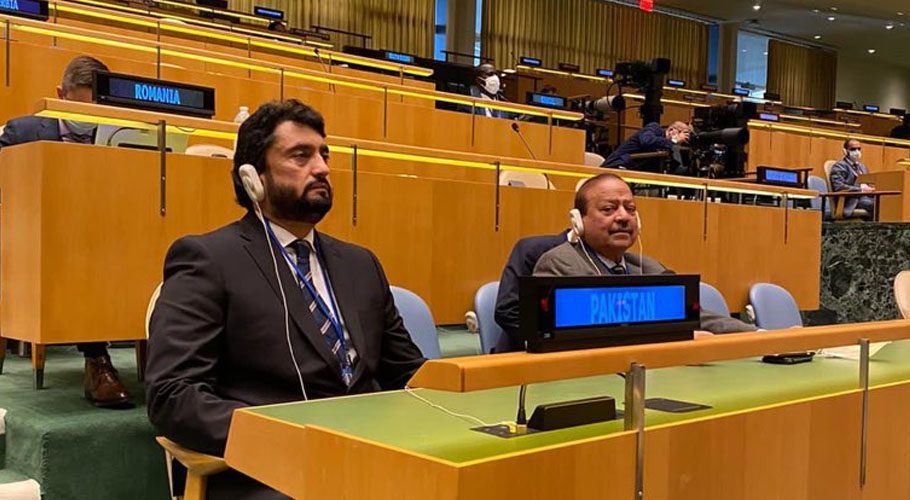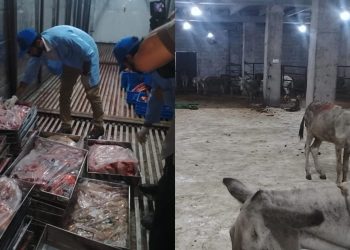NEW YORK: Sheharyar Afridi, chairman of the Special Parliamentary Committee on Kashmir, briefed leading human rights organization Amnesty International, on the worsening human rights violations in the Indian Occupied Jammu and Kashmir.
Afridi met Senior Advocate Lawrence Moss Senior Advocate on the margins of 76th session of the UN General Assembly and briefed the human rights body terming the meeting “productive.”
“I underlined that India has imposed an ‘iron curtain’ on IIOJK since 05 Aug 2019 and was relentlessly pursuing its nefarious design to introduce demographic changes in the occupied territory,” he said.
He added that muzzling civil society voices in India including refusal to allow Amnesty International and other independent observers to operate in the country particularly in occupied Kashmir was a matter of deep concern.
He said he had invited Amnesty International to have in depth and detailed interaction with members of the Special Parliamentary Committee on Kashmir in future. Afridi also presented to Moss a dossier on human rights violations in IIOJK which was recently released by the government of Pakistan.
Amnesty suspends India operations
In September 2020, Amnesty International has suspended its Indian operations after its bank accounts were frozen in what it called a government “witch-hunt” against rights groups.
Government critics within civil society organisations and the media had long complained of harassment in the world’s biggest democracy under Prime Minister Narendra Modi’s Hindu-nationalist administration,,
Amnesty had said it could no longer access its bank accounts in India, forcing it to let go of staff and “pause” all ongoing campaign and research work. “This is the latest in the incessant witch-hunt of human rights organisations by the Government of India over unfounded and motivated allegations,” it said in a statement.
It said the freezing of its accounts was “no accident” after it issued a series of reports alleging “grave human rights violations” by police in deadly sectarian riots in New Delhi in February, and by security forces in India-held Kashmir.
Shehryar Afridi had urged UN to provide immediate security, assistance to human rights groups working in India
“Treating human rights organisations like criminal enterprises and dissenting individuals as criminals without any credible evidence is a deliberate attempt… to stoke a climate of fear and dismantle the critical voices in India,” said Avinash Kumar, Amnesty India’s executive director.




































